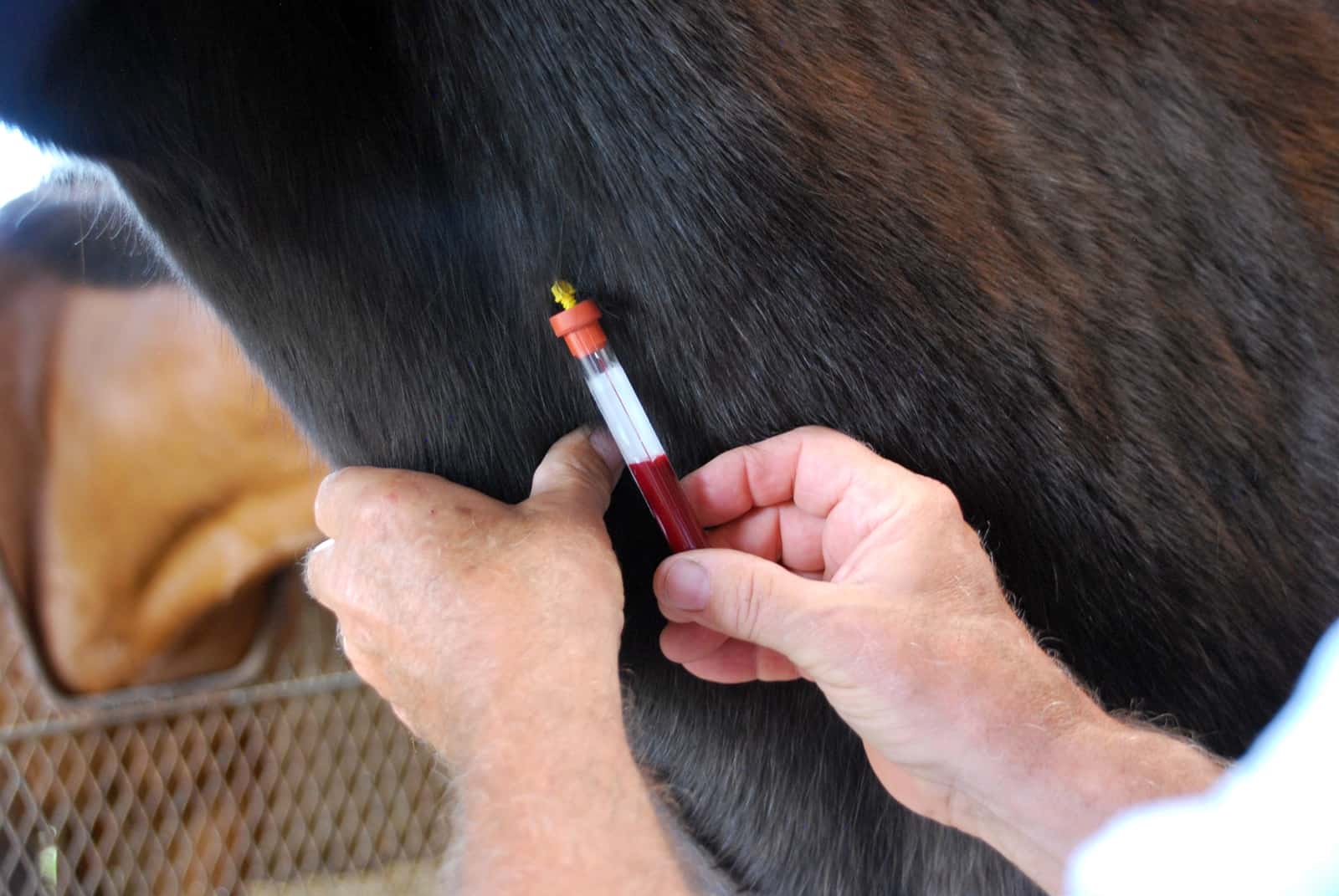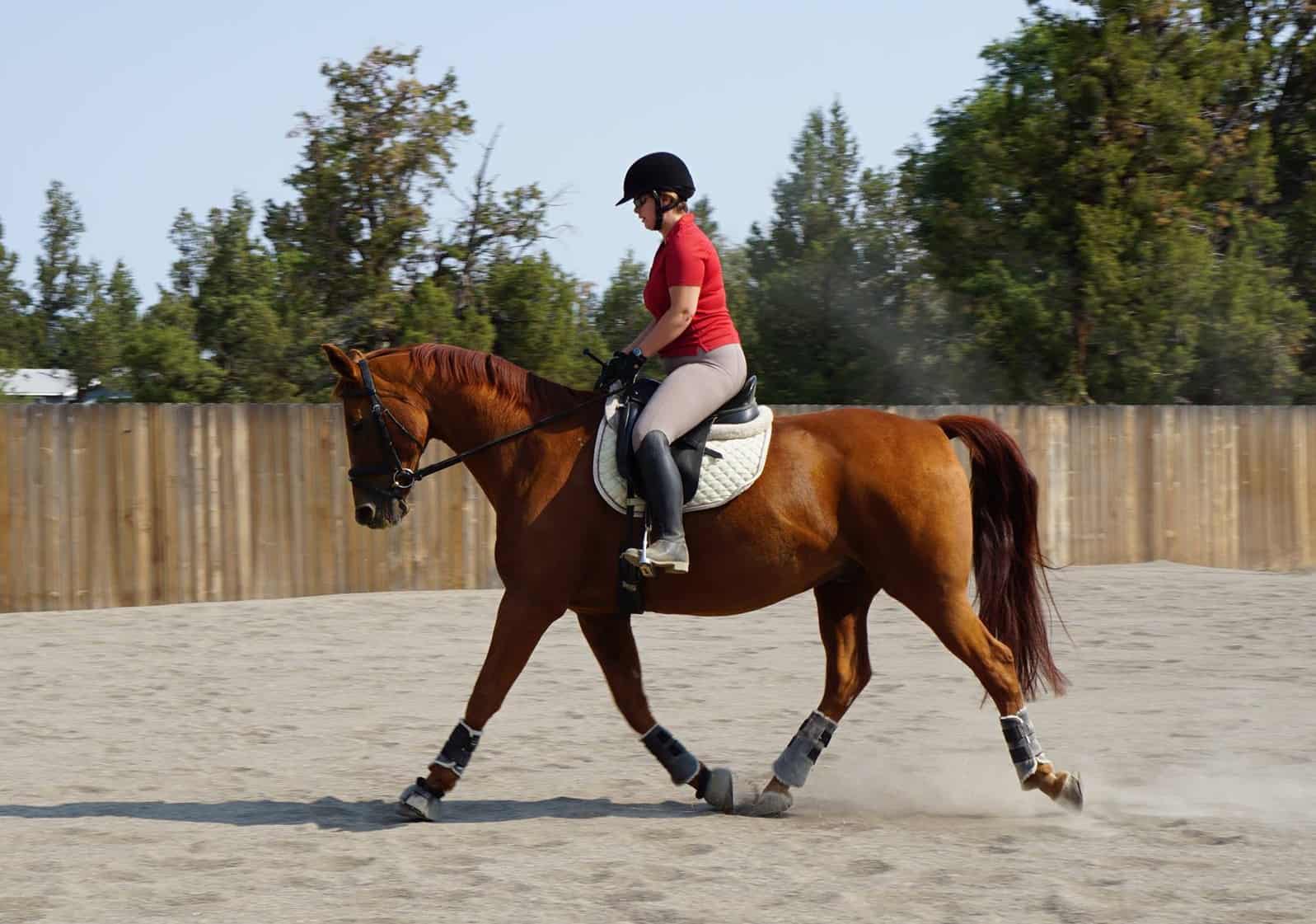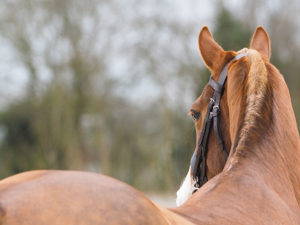PPID: An Endocrine Disease
Pituitary pars intermedia dysfunction (PPID, or equine Cushing’s disease) is caused by an enlargement of the pituitary gland’s middle lobe (the pars intermedia), which results in an overproduction of hormones that regulate bodily functions. Learn more about this disease in our slideshow.
- Topics: Basic Care, Body Condition, Conditioning, Cushing's Disease, Diseases and Conditions, Hoof Care, Horse Care, Laminitis (Founder), Media, Metabolic Problems, Monitoring Exercise Performance, Nutrition, Nutrition-Related Problems, Older Horse Care Concerns, Slideshow, Smaller Breeds, Sports Medicine, Working With a Veterinarian
Share
ADVERTISEMENT

Hypertrichosis (Abnormally Long Coat)
A long, abnormally shedding coat is the hallmark clinical sign of PPID. Body clipping the coat during summer months can help keep a PPID horse from overheating. | Photo: iStock
Early Signs of PPID
While hypertrichosis is a common sign of advanced PPID, horses might show other, more subtle signs earlier. These can include lethargy and decreased performance. Many people think of PPID as an older-horse disease, but studies have identified horses with PPID as young as 7 years old. | Photo: iStock
Affected Breeds
According to the American Association of Equine Practitioners, Morgan horses and ponies are overrepresented in the PPID population. However, horses of any breed can get PPID. | Photo: iStock
Excessive Drinking and Urinating
Horses with PPID also drink and urinate more than normal, healthy horses. These clinical signs are called polydipsia (excessive drinking) and polyuria (excessive urinating). | Photo: iStock
PPID Testing
In addition to noting classic PPID clinical signs, veterinarians can use blood tests to confirm diagnosis. Learn more about diagnosing PPID in “At A Glance: Diagnosing Equine Cushing’s Disease."| Photo: Alexandra Beckstett/The Horse
PPID and Insulin Resistance
Horses with PPID can also become insulin resistant, which leads to many of the clinical signs associate with PPID, including abnormal fat deposits, lethargy, and laminitis | Photo: University of Kentucky's College of Agriculture
Laminitis Risk
Due to hormonal imbalances, horses with PPID have an increased risk of laminitis, a painful hoof disease that can be fatal. | Photo: Erica Larson/The Horse
Nutritional Management
In addition to medication, nutrition plays an important part in managing horses with PPID. Veterinarians recommend decreasing nonstructural carbohydrate (essentially the sugars and starches in the diet) to reduce laminitis risk. | Photo: iStock
Exercise
Keeping a horse with PPID fit can slow muscle wasting while also prolonging his competitive career and long-term comfort. | Photo: Anne M. Eberhardt/The Horse
Share

Michelle Anderson is the former digital managing editor at The Horse. A lifelong horse owner, Anderson competes in dressage and enjoys trail riding. She’s a Washington State University graduate and holds a bachelor’s degree in communications with a minor in business administration and extensive coursework in animal sciences. She has worked in equine publishing since 1998. She currently lives with her husband on a small horse property in Central Oregon.
Related Articles
Stay on top of the most recent Horse Health news with

















